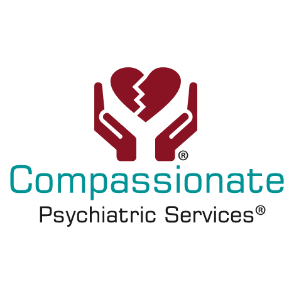Group Counseling Q & A
What Is Group Counseling?
Group counseling at Compassionate Psychiatric Services Group therapy is a therapeutic approach where a small group of individuals, guided by a trained therapist, come together to share and explore their thoughts, emotions, and experiences. It provides a unique environment where participants can connect with others facing similar challenges, fostering a sense of community and understanding. The sessions allow you to better cope with common mental health disorders, such as:
- Depression
- Anxiety
- Substance abuse disorder
- Post-traumatic stress disorder (PTSD)
- Obsessive-compulsive disorder (OCD)
- Eating disorder
- Attention-deficit hyperactivity disorder (ADHD)
- Ongoing stress
- Schizophrenia
What Are The Benefits Of Group Counseling Sessions?
Some of the many benefits you can expect with group counseling sessions at Compassionate Psychiatric Services include:
- Mutual Support and Connection
- Diverse Perspectives
- Increased Self-Awareness
- Developing Social Skills
- Highly effective results
- Improved Quality of life
Therapists at Compassionate Psychiatric Services are licensed, highly trained, and have many years of experience.
Is Group Counseling Right For Me?
To find out if you're a candidate for individual counseling at Compassionate Psychiatric Services, your provider discusses your symptoms, medical history, lifestyle, and preferences. They personalize a mental health treatment plan that’s best for you.
It could include counseling plus oral medication, transcranial magnetic stimulation (TMS), injections, prescription nasal sprays, or lifestyle changes.


